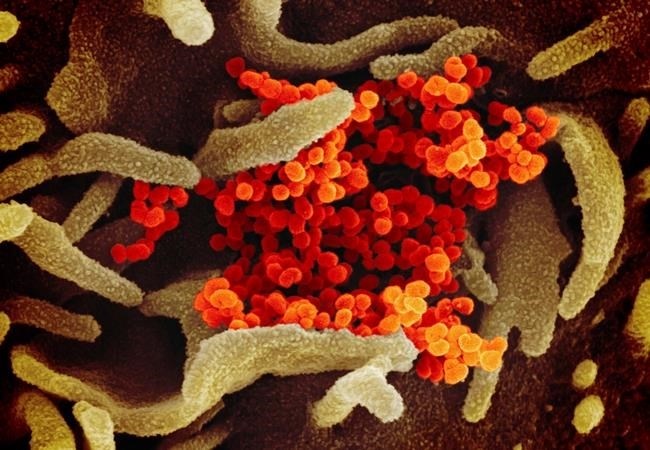
Image Credit: (NIAID-RML via AP)
September 01, 2020 - 6:30 PM
Provincial health officer Dr. Bonnie Henry let B.C. know last week about eight children who have been classified as having “suspect multi-system inflammatory syndrome.”
That’s quite a mouthful but the abbreviation MIS-C isn’t something most people have ever heard of because it’s brand new and seems to be caused by COVID-19 in people under the age of 21.
It’s extremely rare with only 575 cases reported to the U.S. Centre For Disease Control by the end of July.
The medical understanding is that multi-system inflammatory syndrome hits some time after the actual COVID-19 disease. Since young people often have only mild symptoms, or no symptoms at all, they may not realize they’ve been infected.
Two to four weeks later they may be hit with things like persistent fever, stomach pain, rash, breathing problems or swollen lips, hands or feet.
These can be similar to other inflammatory or infectious conditions, like Kawasaki disease, toxic shock syndrome or even appendicitis.
The eight cases Dr. Henry talked about were all in children who were treated at B.C. Children’s Hospital, two of whom have had to go into intensive care. They all recovered.
She called them suspect cases because none of the children tested positive for COVID-19 and none had antibodies that would have indicated they once had COVID-19.
But, it seems, no other diagnosis was determined.
“The disease can cause widespread inflammation across multiple organ systems,” an article on the Yale Medicine website says. “Left untreated, this inflammation can cause long-term organ damage.”
The B.C. Centre for Disease Control says children should be taken to the emergency ward or call 911 with any of the following symptoms:
-
Is having difficulty breathing.
-
Has blue lips or skin, or appears very pale.
-
Is coughing excessively, particularly with a fever.
-
Is vomiting excessively, especially if there is blood in the vomit.
-
Has diarrhea and vomiting, is not producing tears, and has not urinated for several hours.
-
Has a high fever, appears very sleepy, and has not improved with acetaminophen (Tylenol) or ibuprofen (Advil).
-
Is under three months of age and has a fever of 38 degrees C (100.4 degrees F) or greater.
-
Pain or pressure in the chest that does not go away.
-
New confusion.
-
Inability to wake or stay awake.
-
Severe abdominal pain.
To contact a reporter for this story, email Rob Munro or call 250-808-0143 or email the editor. You can also submit photos, videos or news tips to the newsroom and be entered to win a monthly prize draw.
We welcome your comments and opinions on our stories but play nice. We won't censor or delete comments unless they contain off-topic statements or links, unnecessary vulgarity, false facts, spam or obviously fake profiles. If you have any concerns about what you see in comments, email the editor in the link above.
News from © iNFOnews, 2020